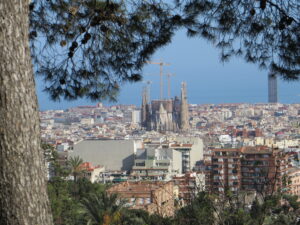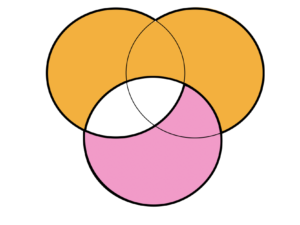Category: Design comment
-

What is the role of urban robotics in an unpredictable world?
Rapid advances in Artificial Intelligence (AI) are making urban robotics an everyday reality. In this blog post we summarise the story of Starship robots in Milton Keynes (MK) to assess their contribution to the complementary mechanisms and institutions that supported the most vulnerable in MK during a challenging point of the Covid19 pandemic. We then…
-

The impact of the built environment on climate change – and of climate change on the built environment
Why is the built environment important to climate change? We all live and work in buildings, and they provide us with shelter and warmth, belonging and protection. However the built environment is responsible for a huge 39% of all global carbon emissions, far higher than any other individual sector. This 39% can be divided into…
-

Reviving Department Stores as Destination Spaces
The London Architecture Festival comes to an end this Wednesday after a month of diverse and fascinating events. With many being hosted online this year, this has afforded the opportunity to attend far more than would normally be possible. Elouise Huxor and I have been exploring some of the discussions around learning spaces, and in…
-

Some Research Conclusions… with Playmobil!
My research is investigating ways to reduce carbon emissions from heritage buildings while retaining their heritage values, I have mostly completed my data collection and am now in the process of analysing it all. Once again the OU Graduate School are running a research poster competition that includes a multimedia option and this seemed like…
-

Homeworld ’81 revisited
The Homeworld ’81 BBC Future Home 2000 Last month I attended one of the online events celebrating the 40thanniversary of the Milton Keynes Homeworld ‘81 exhibition. Yes, I am old enough to have been there (so was Robin Roy and a number of other old timers from the OU). Indeed, as I was covering the…
-

The post-pandemic sustainable future of community gardens in London (Online Workshop)
Online Workshop on Friday 30th of April 2021 from 10am – 1pm During the Covid-19 pandemic, people’s relationships with plant life have altered as has their use of urban green spaces. In UK cities, people have rediscovered public parks as spaces to meet up with friends and family, take a walk, and do sports. In…
-

Claiming our turf. Making spaces safe through inclusive urban design.
Over recent weeks the media has been full of women sharing their stories about their experience of sexual harassment, and the statistics are shocking. It’s shocking too, that women, myself included, are not surprised by them. 97% of young women have been the victim of sexual harassment and, over the last decade, a woman has…
-

Design for repair and maintainability
Recently, I have been thinking about design for repair and maintainability. The three ‘R’s of sustainability remind us to Reduce, Reuse, Recycle, but ‘Reuse’ can be a challenge when so many products are not designed with maintenance or repair in mind. Home printers are a good example, with huge numbers of printers ending up in…
-

Pick a metric, any metric! Designing Building Energy Standards
The UK Government is currently consulting on the Future Building Standard which includes updates to parts of the building regulations dealing with energy use in buildings (MHCLG, 2021). The built environment is a major user of energy and contributor to carbon emissions so tightening standards for new buildings and retrofit is an important step for…
-

An Open Innovation tool for the design toolkit
Sometimes, designing can mean to juggle multiple ideas, opinions, deadlines or budgets all in a single project. The goal, the plan to get there, and the values that drive us are in constant flux, whether we agree or not. As a project unfolds, it can be easy to lose track of priorities or objectives; becoming…
